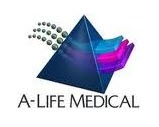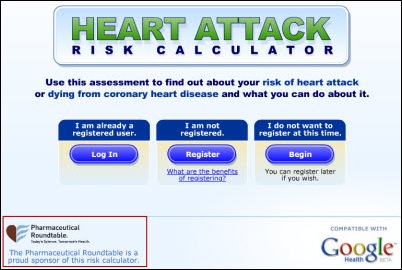There was a time when my company went through multiple rebrands. These were relatively minor shifts, but completely unnecessary. It…
News 9/22/10
From Medicament: “Re: Epic UGM. Announced attendance is 5,500 vs. 3,800 last year. Surreal. This panorama is from the auditorium just after Judy’s keynote.” If you are there, send me a report of any newsworthy developments. Sorry the pic is small, but that’s the point: the meeting isn’t.
From Neils Bohr: “Re: Accenture. I heard they got the HHS contract for use case for the Standards and Interoperability Framework last Friday.”
From Epic CoOp: “Re: Epic consultants. Given the huge demand, 20 of them are forming a consulting co-op to keep the cut that temp agencies take.”
From Blue Danube: “Re: video. Even though it’s an ad for Centricity, it paints a pretty accurate picture of primary care and the need for EMRs.”
Listening: new (released just today) from John Legend and The Roots, a collaboration between the modern R&B/hip hop singer (John Legend) and the Philly funk band (The Roots), updating socially conscious soul songs from the 60s and 70s. I can’t describe just how awesome this album is, sounding as fresh and uncomplicated as Motown circa 1968. If you don’t like soul or hip hop music because it’s over-produced, non-melodic, and fixated with trite subjects like lust or fame, let this rekindle your hope for the genre. I usually condition my recommendations knowing they aren’t for everyone, but this one’s for everyone.

UnitedHealth Group makes another buy, announcing plans to acquire coding vendor A-Life Medical. I covered it in a news blast here. UnitedHealth Groups is obviously on an HIT tear, bagging four companies so far this year. That’s a good reminder to sign up for updates using the Subscribe to Updates box on the upper-right of this page and/or to Friend/Like us on Facebook since I usually post new stuff there too.
The San Diego office of the FBI announces that El Centro Regional Medical Center (CA) will pay $2.2 million plus interest to settle Medicare fraud allegations brought forward in a former employee’s whistleblower lawsuit.
Rothman Healthcare hires Richard Sommer as CEO. I hadn’t heard of the company, so I checked it out. It markets products based on The Rothman Index, an automated system that collects 26 observations and results for each patient every hour and graphs the score so caregivers can quickly see who’s crashing. The trial was at Sarasota Memorial (FL). The Rothman brothers found the company after their mother died after post-surgical complications that were subtle and therefore undetected in the hospital. According to the company’s site, nurses at its first hospital site identified a patient going bad within five minutes of bringing the system up in test mode, reacting to a patient whose pulse-ox had dropped from 98% to 85% over two days without alarming anyone.
Jewish General Hospital of Montreal, Quebec will use education and clinical image sharing tools from Aurora Interactive to create an online pathology education network.
McKesson, HP, and Intel launch a site that mixes HITECH resources with preconfigured EHR hardware/software packages.
Transcend Services announces BeyondAlerts, which extracts clinical data from transcribed narrative to trigger provider alerts.
Panasonic will offer data encryption from Mobile Armor in its Toughbook notebooks and mobile clinical assistants. That includes self-encrypting Seagate drives, centralized management, pre-boot authentication, and auditing. Smart.
I made fun of a Brainware sales announcement a few weeks back because it didn’t name the customer (for contractual reasons, no doubt, but I still questioned the newsworthiness of an anonymous customer sale). They sent me their latest announcement this week, joking that this one names names, that being Gundersen Lutheran Health System (WI). Brainware and Ascend Software are providing the Brainware Distiller intelligent data capture tool along with business process automation for the health system’s Lawson accounts payable system. Brainware’s tools pull data out of unstructured sources such as invoices without templates or indexing. For AP, that means speeding up processing and providing a near real-time view into liabilities. It uses fuzzy search to assign GL codes and vendor numbers to non-PO invoices. Its Gateway product is a portal for vendors to check the status of their invoices online.
Since I shamed Brainware, let’s move on to the next poster child for bad press releases. Does this headline roll off your tongue? The Institute for Transfusion Medicine(SM) (ITxM)(SM) Deploying BIO-key(R) Fingerprint Search and Identification Solution for Donors and Patients. Marketing people can’t even introduce themselves without holding up little trademark and service mark signs. I guarantee that nobody could read this even 2-3 times and have the slightest clue what it’s about with all the unnecessary, lawyer-paranoid clutter.
Covisint, the portal vendor owned by Compuware, acquires DocSite of Raleigh, NC, which offers PQRI, registry, decision support, e-prescribing, progress notes, and integration tools. Roger Sterling tipped us off in the 9/1 HIStalk, although Inga couldn’t get Covisint to confirm.
Children’s Boston will use Allocade’s On-Cue Operations Management software in radiology. It pulls data from existing systems to create a rule-optimized patient itinerary and provides caregiver collaboration tools and business intelligence.
New Jersey’s HITREC contracts for physician practice consulting services from Nit Health. Being a hospital guy, I couldn’t help but think of small combs and Kwell shampoo.
Maimonides Medical Center (NY) goes live with InterSystems Ensemble for rapid integration and development, using it to develop new interfaces to/from Sunrise Clinical Manager.
An interesting debate at the VA: should tech-savvy doctors be allowed to store limited patient information using cloud-based Web tools if they appear to be secure and if the VA’s systems can’t meet their needs otherwise?
A study finds that a heart attack risk calculator used by consumer health sites is not very accurate, misclassifying 15% of patients as needing medications when they really don’t (check out the screen shot I took above from the American Heart Association’s version of the calculator to see why that’s not too shocking). Epocrates is mentioned as offering physician treatment applications based on the flawed formula.
HERtalk by Inga
From Heresay: “Re: certification pricing. I’ve heard CCHIT is charging $40-$60,000 for EHR certification compared to Drummond’s $20K.” If anyone thinks they have a solid handle on the pricing from the three ONC-ACTBs, please step forward. InfoGard has yet to publish any details, but here is how I am interpreting the pricing from CCHIT and Drummond:
- Complete EHR Ambulatory: CCHIT $34,300; Drummond $19,500.
- Compete EHR Inpatient: CCHIT $32,550; Drummond $19,500.
- If you don’t need testing for the full EHR and just need individual modules tested, CCHIT has assigned a per-module fee for testing that ranges from $650 to $2,000, depending on the module’s complexity, plus a $7,000 base fee that includes the mandatory security criteria.
- Drummond charges $11,500 for up to 19 modules, include the mandatory measures, or, $16,000 for 20 or more modules, including the mandatory items.
To summarize: Drummond is less expensive if you need complete EHR certification and testing. If you need module testing only, CCHIT could be less expensive. The CCHIT folks would probably add that their fee includes a comprehensive testing and certification toolkit for vendors, which they will sell to non-applicants for $1,000. Also, vendors with CCHIT 2011-certified products will not need to pay additional fees for the ONC-ATCB certification through CCHIT, though additional testing is required.
I happened upon this blog post by an Epic User Group Meeting attendee. He shares details of Sunday night’s round-the-campfire wienie roast, complete with s’mores, dogs, and employee-provided entertainment. Very cool. Epic is expecting over 5,300 customers to hit Verona this week for this year’s theme, “UGM: The Musical.” In addition to 300 educational sessions, the meeting will feature Epic staff singing Broadway tunes, Les Feud game show, and a tug-of-war tournament.
KLAS finds that nearly 70% of new 2009 hospital EMR purchases were for an Epic or Cerner integrated solution. Overall EMR sales nearly doubled last year in the 200+ bed hospital market. Meditech and Siemens saw limited growth and McKesson’s Paragon product outsold McKesson’s Horizon solution.
RCM company NHPN appoints David Garber SVP of managed care. Garber has held leadership positions in a number of managed care organizations, including CompServices and Coventry Health Care.
A third of office-based providers are now e-prescribing, according to Surescripts. However, only 12% of all prescriptions were written electronically last year. The number of providers using electronic prescribing grew significantly from 2008 to 2009, from 74,000 to 200,000, while the total number of e-prescriptions jumped from 68 million to 190 million. Massachusetts had the highest e-prescribing rate at 57%, followed by Rhode Island and Delaware.
Corey Hall joins REACH Call as EVP of medical informatics, coming over from the College of American Pathologists.
Sponsor Updates
- iMDsoft and Medical Web Technologies (MWT) partner to integrate their technologies. iMDsoft will offer MWT’s One Medical Passport pre-op workflow solution as part of its MetaVision AIMS product.
- Greenway Medical Technologies introduces its Allergy Module for PrimeSuite EHR, which includes injection record tracking, allergen testing, serum development, and lot administration and reporting.
- API Healthcare says that 35 provider and contingent staffing clients have gone live with its workforce management solutions this year.
- NextGen Healthcare provides VHA members special pricing on its clinical and financial software.
- Vanguard Health Systems deploys Medicity’s Novo Grid HIE technology to 850 physicians across four states.
- Parkview Medical Center (CO) selects RelayHealth’s RevRunner to improve its revenue cycle performance.








I know little of Drummond’s reliability or validity, they appear so far to committed to a careful certification process. I am told, however, by everyone who has used CCHIT or served as judges on CCHIT panels that they will certify an old Apple IIe as a full EHR is you pay them the fee. That the ONC appointed them makes the meaningful use process meaningless. CCHIT, of course, is a creation of HIMSS to ensure sales of their members’ products. How sad for those of us who so wish to see EHRs improve our efficiency and the safety of our patients.
To be honest, I am equally unfamiliar with the new vendor, but I certainly hope they are dedicated and honest.
Epic UGM tweets: http://hashtags.org/epicugm
Re : EPIC Consulting Co-op. Great idea. I saw that being discussed on LinkedIn. I think most consultants have been stung by unscrupulous “consulting agencies” (read recruiting companies). In almost all cases they do not add value for the client. Most don’t even understand the EPIC modules. They tend to put forward a poorer candidate for higher margin, than a more qualified candidate with less per hour margin. And for what? Doing payroll and in some cases fronting some money? It’s a shady game, with few exceptions. Those exceptions tend to be companies run by ex-consultants and not recruiters. Hospitals looking for EPIC consultants should take note. I wish them the best of luck.
Thanks for the price breakdown. I quickly skimmed through the InfoGard website and couldn’t find any info regarding pricing; hopefully they’ll publish more than their cursory press release soon.
When will all the Epic users learn they are being hoodwinked? $600 per person for 5500 people for a conference held at the corporate office (no rental fees) with no outside keynote speaker, employees providing the entertainment, and a hot dog roast for meals? How much is Epic banking off a bunch of suckers who flock to Wisconsin for a low-budget conference at high-budget prices? This is, sadly, the norm for Epic users though. While you’re all marvelling at the cool buliding they’re in, think about how many nurses you had to lay off to pay for the treehouse and the slide, or how you could’ve renovated a floor of your hospital on the money you would’ve saved by going with a cheaper vendor. Just remember, that whole Epic campus is paid for out of your pockets. Now you get to overpay for Epic consultants (many of whom will have no idea what they’re doing, since there aren’t enough experienced people to fill the need), who realize they are a scarce commodity and will price themselves as such. Epic doesn’t care, they took your money and you get to fight with consultants over implementation and maintenance. I’ve said it before – it’s the fleecing of America, and Epic sheep are fighting over who gets to go first.
Re: John Legend and the Roots: AGREED! The album is unreal. As an avid fan of both Legend and the Roots as individual artists/groups, their collaboration is something everyone one who enjoys music should give a listen to. The raspy, neo-soul, Sam Cooke-type vibe projected from Legend’s vocals mixed with the up-tempo sounds of ?uestlove on drums and Black Thought’s hard delivery of rhythm and rhyme makes for a brand of funky, hip-hop/R&B that NEEDS to be heard. Not to mention Legend’s mastery of the ivories–divine! Whether live or in the studio, each part of this collaboration can create music that will make even the most frigid, non-music lover tap their toes to the beats and sounds emitted from their speakers. I highly recommend everyone to pay this album some attention. The recreation of music from yesteryear shocked back to life by these artists portrays pure talent. But that’s just my opinion…
Been a fan of the Roots from their first album onward. Simply amazing musicianship. Heading off to iTunes now to get that album
I agree Giggling. I’ll take Meditech users group (MUSE) international meeting any day over a trip to WI (which for me is just a hop across the pond). Dozens of vendors, education sessions with plenty of dining options and after meeting entertainment.
5K+ at Epic UGM?? That classy theatre she built can only hold 5k, Better start building a 10k one….quick!
I think it is actually a credit to Epic that it wisely uses resources to create a place where people want to work.
And the fact that although many of their customers read HISTalk they aren’t lining up to bash them even though competitors like Giggling try to goad them.
Epic seems to be focused on helping customers meet the stimulus requirements as part of their customers have already purchased and helping them do the work to get ready as part of their normal tech support.
Giggling – if you work for a competitor, then just espouse that competitors core virtues and customer successes and leave Epic out of it. If you’re working at a health system that is thriving on another product, great. Tell that story. It will help your vendor and there’s nothing wrong with that.
There’s lots of room in the market, especially now. If people want to go with Epic, so what. That’s their choice. Who are you to mock them for what looks to be a reasonable choice. I don’t see Epic people mock others for making a different choice than Epic.
Easy to be negative anonymously on a blog. Let’s find a better use of the bandwidth though. We’ll all be better for it.
I don’t know how many practicing clinicians read this blog, but those who do will understand my point – EHRs are a very small part of actual patient care, but becoming a larger part of hospital budgets. Epic is a great product if you want an electronic version of an old-fashioned paper chart. VistA and Meditech served this role well for many years, and every vendor in the marketplace accomplishes this goal as well. It’s important to have easy access to clinical data. I am an advocate for electronic health records and the numerous benefits they bring. Newer technology is starting to make these sorts of products real clinical tools, but Epic is not one of them in my humble opinion. In medicine, we always talk about science and evidence – so show me a comparison study that Epic leads to better quality care than Medsphere/VistA or any other EHR. Then show me an economic analysis that the cost of Epic justifies any quality improvements (assuming there are any) over the cheaper EHR. Those studies have never been done, and never will be done, and hospitals will continue to throw away money and resources on a product that isn’t actually enhancing care quality at a rate that justifies expense. New guidelines recently adjusted up the age that women should get a screening mammogram, because it’s not worth it to catch a few extra cases in younger women to justify the cost of screening so many.
It makes me particularly angry to see academic centers, which often treat both the sickest and poorest patients, throwing away money on something as expensive as Epic without using the science they preach to all of us at the bedside. The $450 million number at Yale still boggles my mind; I’d be embarrassed to be a physician at that hospital if I knew that’s what administration was spending for my computerized chart. I’d happily stick to paper in that scenario. Next time you go to a hospital and wonder why it takes a nurse so long to get to you, realize they’re not lazy, they’re covering 6-7 patients instead of 4. Next time you get rejected for a referral to a specialist, take another glance at your insurance card (if you have one). Next time your uninsured 20-ish year old kid gets in a car wreck and ends up in a trauma center and you’re wondering how he/she will ever pay those bills, remember that at least their labs look good on that Epic computer screen. I myself have worked in a (county) hospital that ran out of cardiac stents because they had a fixed budget for the year, and by winter time had to start rationing who actually got stents during a cath. But at least they can afford Epic. Only 3 years ago, I had a patient who was referred from a rural hospital to MD Anderson with a new diagnosis of acute leukemia. He was severely ill, and ecstatic to get into a world-class hospital like MD Anderson. Then they realized he had no money. He got a PICC line and a one-way ticket to our county hospital. Unfortunately, that PICC line gave him a fever by the time he reached us and sepsis shortly thereafter. He eventually died during that admission. I understand MD Anderson will be going live on Epic soon. How nice. Maybe then when that scenario happens again I won’t have to call and request paper records like I did last time. I have nothing against MD Anderson; I think it truly is a world-class hospital that deserves its reputation, and I have nothing but respect for the clinicians that work there. However, hospitals have only a finite amount of money, and while EHRs are vitally important, they shouldn’t eat up that much of the budget and take away from direct patient care. Every new Epic deal I see posted on here, all I can help but think about is how much more wisely that money could’ve been spent.
Re: Giggling outide, crying inside Says: Great post! I’m a clinician and I can certainly undestand your point and completely agree with you. And what’s sad, is that all of the ARRA incentives (taxpayers money) being doled out to institutions (well, vendors) to adopt these old “Paper” like EHR’s is just going to impede any kind of meaningful innovation in the industry. Hospital CIOs are just gonna jump on the bandwagon and buy what everbody else is buying (job security?), which seems to be the case with Epic.
It would be great if Mr. H would have a poll to see what percentage of his readers are Clinicians, Technical, Management, Mix. From the comments that I read, it seems like the vast majority are not clinicians.
@GOCI: What evidence do you have that those who have chosen Epic have done so “without using the science they preach to all of us at the bedside”? You require a “a comparison study that Epic leads to better quality care than Medsphere/VistA or any other EHR” without taking into account that there are no comparable installs of VistA/Medsphere outside of the VA in terms of size and complexity, and that the cost of any other EHR for that size of organization is similar to Epic’s.
Also, AFAIK, MD Anderson is not an Epic customer, so it is unlikely that they will be installing Epic soon…
http://healthitupdate.nextgov.com/2010/09/when_members_of_a_federal.php
“Obviously biased, Jung claims that his company’s Vista derived product is a more effective solution and a better value. In West Virginia, he says, Medsphere deployed its system at a 1,200-bed facility for $9 million, a fraction of the $90 million total incurred by a similar facility of the same size that adopted Epic’s proprietary system.”
You guys are seemingly fairly biased and playing loose with the data.
Here’s the deal – Epic’s revenues each year have been fairly accurately estimated. Add them up through all of time. Yup, make some guesses back to 1979 if you need to.
Then, get the data on how much tax payer money the government has spent on Vista and AHLTA. Yes, you can get it under FOIA.
Then, go buy a better calculator for this next step.
Add up all the money spent on Vista and AHLTA.
(Don’t try this with a basic calculator – you need one with lots of digits, otherwise you get that 7.3 E+whatever stuff that’s hard to understand.)
Then subtract off all the money that Epic has EVER made.
I know, the number on your calculator won’t actually look like it even changed, especially if you have one of those E+whatever deals going on.
The sum total of everything ever received by Epic from its customers is an absolute rounding error compared to how much tax payer money has been poured into government EHR boondoggle programs.
Mr H, you should see if you can talk Inga into helping you do the FOIA requests to figure out the real number spent on Vista and AHLTA.
Epic customers get a good value. If they didn’t, it would be pretty well known by now. Look at what the industry said about the Cerner vision center of the 90s or the Siemens Soarian claims in the early 2000.
You don’t get a free pass in this industry. You have to work hard to keep people happy or you get blasted.
Two points:
Nobody truly knows how much Epic has made over the years because it is privately held and therefore not required to disclose any of its numbers.
Part of the reason Epic is so expensive is their business model. They take a larger software fee than other vendors because that’s where they make their money. Consultants then step in and again charge often exorbitant prices for services. Other vendors make money on services and can afford to sell the whole package cheaper. In calculating the cost of Epic, one must consider all the costs, not just profits of the company itself. Cost really comes from the hospital customer records, not the company. I really would love to see the fundamentals of ROI numbers Epic pitches to customers (and those calculated by KLAS), because really none of the current enterprise EHR solutions are differentiated enough to where their return is significantly different, so all the ROI would come from the investment cost; in Epic’s case, they are without a doubt the highest cost, which suggests that their ROI is lower despite what KLAS says.
@Anonymous: You are correct that “In calculating the cost of Epic, one must consider all the costs, not just profits of the company itself. Cost really comes from the hospital customer records, not the company”. In fact, every time there is a number reported by an organization regarding their Epic implementation, it is all the costs. And when healthcare organizations calculate these costs, and compare them to other vendors, Epic turns out not to be the highest cost (as stated, for example, in this earlier comment http://histalk2.com/2010/08/21/monday-morning-update-82310/#comment-10799)
The comment I was referring to is at http://histalk2.com/2010/08/21/monday-morning-update-82310/#comment-10799